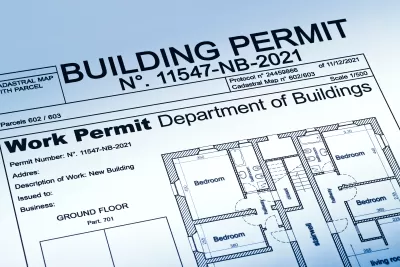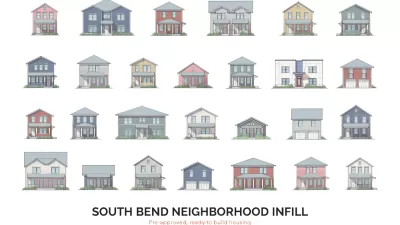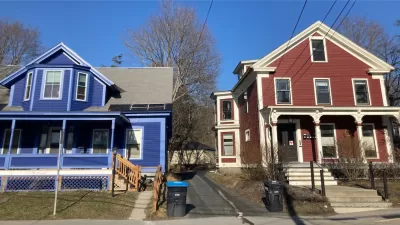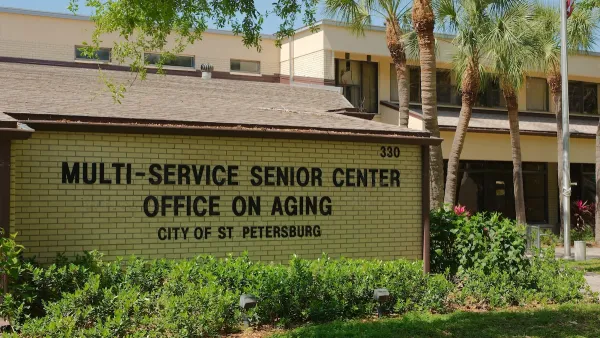Faced with blighted neighborhoods where the cost of building a house would exceed its eventual market value, the city of Kalamazoo, Michigan, streamlined the permitting process to help lower development costs.

By 2015, a state land bank program intended to fight blight had accumulated 267 derelict properties in Kalamazoo, Michigan. The problem? The cost of building a house eclipsed what its market value would be when finished. Without the financial incentive to build or improve homes in these neighborhoods, these areas just declined further, reports Ben Abramson of Strong Towns.
A coalition of city, county, and state agencies, along with housing developers, advocates, and nonprofits banded together to identify solutions to help them fill those vacant lots. The first fix: resolve the zoning issues that had rendered 67 percent of land bank acquisitions unbuildable and created financing hurdles for homeowners. The second solution: streamline the permitting process by creating a “pattern book” of pre-permitted housing plans and adding all required permits and inspections to the process, which effectively minimize costly variables and surprises.
After doing a proof of concept with a local nonprofit and ironing out some kinks, as of 2024, 48 homes have been built using Kalamazoo’s pre-permitted plans,” according to the Strong Towns article, including a stacked duplex, a four-bedroom standard house, a narrow house that can fit on a lot as small as 30 feet wide, and an ADU.
“Overall, KNHS says that in 2022, it helped 106 local residents buy or substantially improve their homes. It is also working to train local residents in the building trades to work on future projects,” Abramson writes. “Now the plans have been made available to small for-profit developers. In those cases they must prepay for all permits and inspections, but having access to proven, high-quality designs substantially lowers their upfront costs.”
FULL STORY: Pre-Permitted Plans Help Kalamazoo Bring Housing Back

Maui's Vacation Rental Debate Turns Ugly
Verbal attacks, misinformation campaigns and fistfights plague a high-stakes debate to convert thousands of vacation rentals into long-term housing.

Planetizen Federal Action Tracker
A weekly monitor of how Trump’s orders and actions are impacting planners and planning in America.

In Urban Planning, AI Prompting Could be the New Design Thinking
Creativity has long been key to great urban design. What if we see AI as our new creative partner?

How Trump's HUD Budget Proposal Would Harm Homelessness Response
Experts say the change to the HUD budget would make it more difficult to identify people who are homeless and connect them with services, and to prevent homelessness.

The Vast Potential of the Right-of-Way
One writer argues that the space between two building faces is the most important element of the built environment.

Florida Seniors Face Rising Homelessness Risk
High housing costs are pushing more seniors, many of them on a fixed income, into homelessness.
Urban Design for Planners 1: Software Tools
This six-course series explores essential urban design concepts using open source software and equips planners with the tools they need to participate fully in the urban design process.
Planning for Universal Design
Learn the tools for implementing Universal Design in planning regulations.
Gallatin County Department of Planning & Community Development
Heyer Gruel & Associates PA
JM Goldson LLC
City of Camden Redevelopment Agency
City of Astoria
Transportation Research & Education Center (TREC) at Portland State University
Jefferson Parish Government
Camden Redevelopment Agency
City of Claremont





























